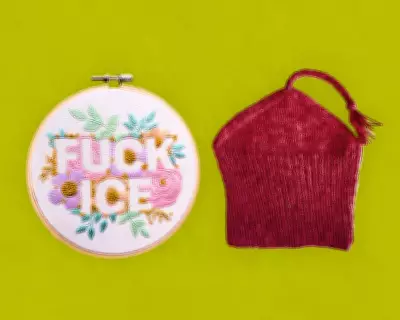
Gardening royalty Alan Titchmarsh has issued a surprising warning to Britain's green-fingered enthusiasts: your obsession with tidiness might be doing more harm than good. The beloved horticulturist is championing a more relaxed approach to gardening that could transform your outdoor space into a wildlife haven.
The 'Tidy Garden' Trap
In a refreshing break from conventional wisdom, Titchmarsh argues that meticulously neat gardens are essentially 'green deserts' for local wildlife. "We've become too tidy," he explains. "People think a good garden is one where everything is neat and orderly, but actually, that's not how nature works."
Why Messy Gardens Matter
The gardening guru emphasizes that those fallen leaves, untidy corners, and spent flower heads serve crucial purposes in the ecosystem:
- Insect hotels: Hollow stems and seed heads provide winter shelter for beneficial insects
- Bird buffets: Leaving seed heads standing offers vital food sources for birds during scarce months
- Natural mulch: Fallen leaves create protective layers that enrich soil and shelter small creatures
- Habitat heaven: Untidy corners become safe havens for hedgehogs, frogs, and other garden helpers
Titchmarsh's Top Tips for Wildlife-Friendly Gardening
Embrace the imperfect: "Don't be in a rush to cut everything down," advises Alan. "Those tatty-looking plants are actually full of life."
Create layered habitats: Incorporate trees, shrubs, and ground cover to provide shelter at different heights for various species.
Leave the leaves: Instead of bagging up every fallen leaf, let them decompose naturally to improve soil health.
Delay your cleanup: Wait until spring to clear away dead growth, giving wildlife maximum protection through winter.
The Bigger Picture
This approach isn't just about creating pretty gardens—it's about addressing Britain's declining biodiversity. As natural habitats shrink, our gardens have become increasingly important refuges for struggling species. Titchmarsh's message comes at a critical time when many native species face unprecedented challenges.
"It's about changing mindsets," says the gardening expert. "A garden that's alive with creatures is a healthy garden. The buzzing of bees and the fluttering of butterflies should be music to any gardener's ears."
So before you reach for the strimmer or leaf blower this weekend, remember Titchmarsh's wise words: sometimes, the best thing you can do for your garden is absolutely nothing at all.





